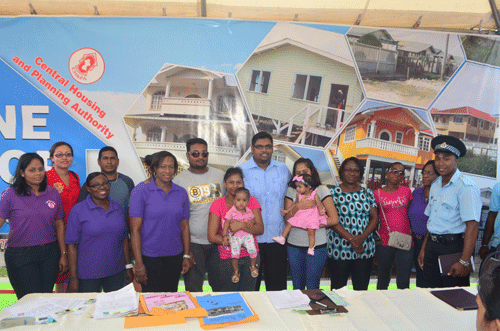COMPLAINTS relating to the second hand car market in Guyana have topped the others received by the Competition and Consumer Affairs Commission (CCAC).
The latter, in turn, raises concerns about business practices when selling vehicles, financing and after-sale guarantees.
| ‘As Guyana’s economy continues to grow, this trend will undoubtedly continue to grow also. Not only has the automobile industry benefitted from economic growth. In fact, it is an important driver of growth, income, employment and innovation and it is responsible for numerous spin-off industries.” – CCAC’s Chairman, Mr. Ramesh Dookhoo |
 For that reason, the CCAC, yesterday, convened, for the first time this year, a seminar to help second hand car dealers comply with important pieces of consumer protection laws covered in the Consumer Affairs Act (CAA).
For that reason, the CCAC, yesterday, convened, for the first time this year, a seminar to help second hand car dealers comply with important pieces of consumer protection laws covered in the Consumer Affairs Act (CAA).
Themed ‘How the Consumer Affairs Act will impact the auto industry in Guyana’; the discussion forum was hosted at Regency Suites Hotel on Hadfield Street, Georgetown.
It was led by technical staff of the CCAC and Consumer Affairs Advisor/Lead Technical Advisor to the CCAC, Mr. Massimiliano Gangi, an expert in competition law and international best practices in consumer protection.
The CAA alters, significantly, the way in which consumer protection is viewed in Guyana, outlines the duties of a supplier and creates a framework to which all transactions between consumers and suppliers must adhere.
The CCAC’s objectives are to encourage competition, prohibit anti-competitive business conduct, investigate alleged abuses of a dominant position in the market and trade and promote consumer welfare in Guyana.
The CCAC is the body established to enforce the CAA and the topics discussed yesterday included information to consumers, warranties, unfair contract terms and trade practices in the auto industry.
PROBLEMS
CCAC’s Chairman, Mr. Ramesh Dookhoo offered that the exercise was based on problems in the second hand car market as they relate to complaints brought to the commission.
He said: “Complaints received do not apply to every dealer. Nevertheless used cars have topped the number of complaints to the commission. This  raises concerns about the industry in Guyana and business practices.”
raises concerns about the industry in Guyana and business practices.”
The purpose of the gathering was to inform car dealers about the consumer legislation and their obligations in doing their business, Dookhoo said.
However, he pointed out that it was not meant to be exhaustive and so dealers were urged to acquire a copy of the CAA and contact the Commission for clarification on any section.
“This seminar not only applies to the selling of cars but also other vehicles such as motorcycles and other motor vehicles, with special focus on second-hand vehicles. By second hand, we mean any vehicle with a previous user,” Dookhoo explained.
The legislation sets out broad rules outlining when business practices are unfair, such as giving false information to, or deceiving, consumers through false advertisements or statements; giving insufficient information to consumers; acting aggressively, using harassment or coercion and failing to act in accordance with acceptable trading practices.
Meanwhile, Dookhoo remarked that Guyana’s auto industry has seen significant growth in the last few years and even decades. Suppliers have responded to an increased demand from consumers for new and reconditioned vehicles of all models.
“As Guyana’s economy continues to grow, this trend will undoubtedly continue to grow also. Not only has the automobile industry benefitted from economic growth. In fact, it is an important driver of growth, income, employment and innovation and it is responsible for numerous spin-off industries,” he observed.
He said the Commission believes that more needs to be done to ensure dealers are aware of the law and consumers are aware of their rights. Dealers who fail to comply with the laws, though, face a real threat of effective enforcement action by the commission.
Apart from Dookhoo, other presenters included CCAC Director Seema Rambaran, economist Haroon Khan, Consumer Affairs Officer Clifford Zammett and Legal Officer Alicia Primo.




.jpg)









